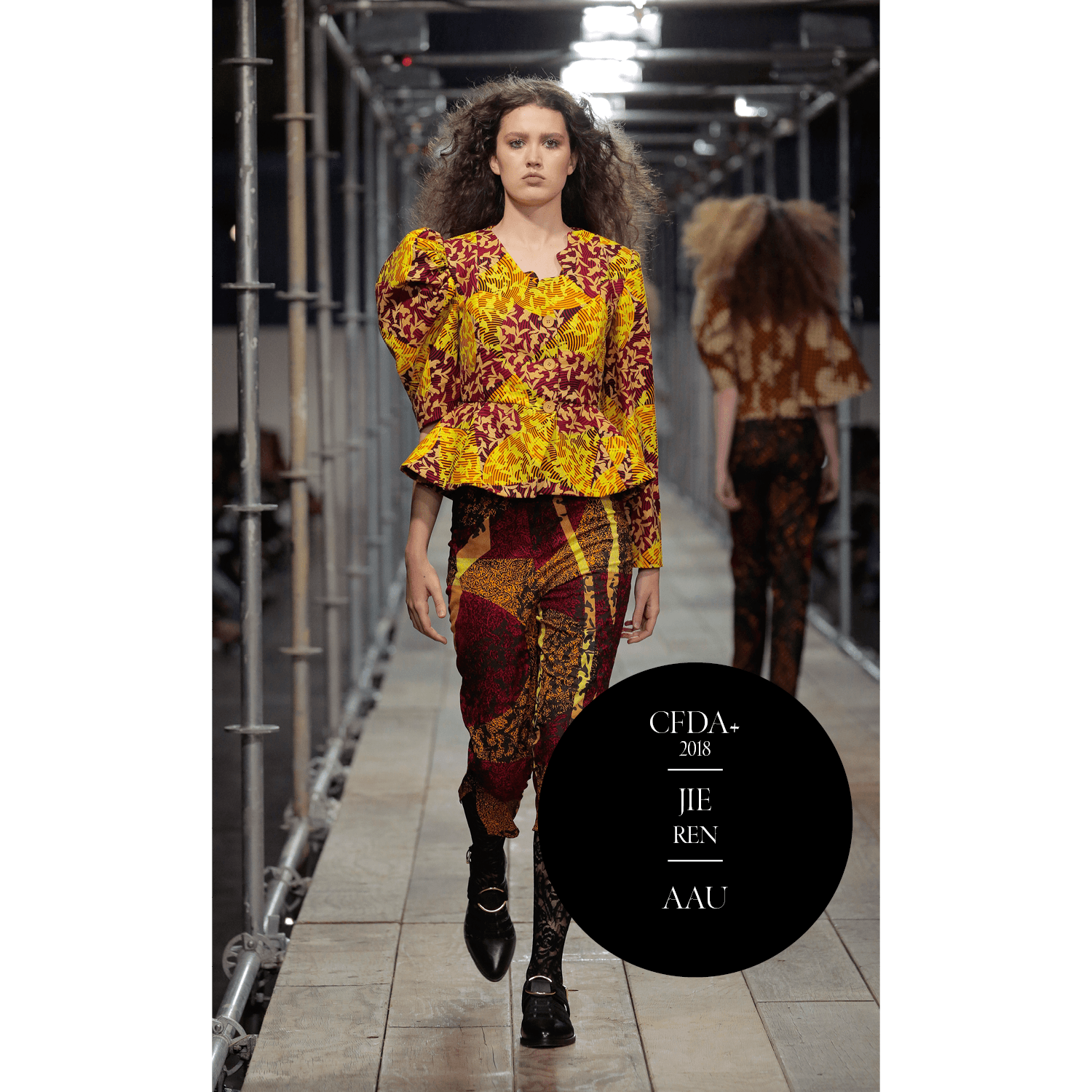The designers: Jonathan D Baker (Fashion/ Knitwear), Tessa Guerra (Fashion/ Textiles), Vicki Yang(Fashion), Louie Greaves (Fashion), Nimma Sethi (Fashion), and Sydney Chang (Fashion)
The inspiration: Resurrection of post industrial waste/ recycling, urban nomadic living.

The business model: Slow fashion brand recycled post consumer waste.
Sponsorship/Donation: Vermont Organic Wool Fiber (yearn), Jimtex Yarn (Recycled yarn), Weston Wear (cutting room fabric scraps), Matto Creative (hand dyed organic indigo thread).

All photos by Rob Curry
The look: Mad Max-funk.
The philosophy: In a world of new ideas and a refreshed sense of global awareness, we need to come up with innovative ways of being sustainable. When a man and a woman can share the same piece of clothing, that increases a product’s sustainability. Well it generates less consumerism and it expands the product’s life cycle. The whole point of sustainability is to be able to reuse, to create less waste, not harm the environment in the process and deplete thoughtless consumption. Its a small step but i feel every step counts. When given this challenge, we as designers didn’t realize what impact we could have on a local, national and global level. So we would say this semester has been a great eye opener for us, i feel like we have all changed our view towards fabric choices, processes, labor practices and most importantly our outlook towards sustainability. Working in a group has been fulfilling and conflicting. But with one goal in mind, we have been able to embrace our differences and worked with it. Now, we question each detail from a button to outsourcing? We ask ourselves where the fabric came from? did it pollute the environment, deplete our natural resources? Were there any unfair labor practices involved in the production of the fabric to the production of the garments? Where will our clothing end up, will it have a strong life, will it add to someone’s life or just be another hanger in the overcrowded closet? Then what, how will they throw it away? Does it get recycled or stuck in a landfill? Have we somehow contributed to our local community, to the world itself? We are aware of our place in the industry and we can make small changes in regards to social, economic and environmental sustainability.



